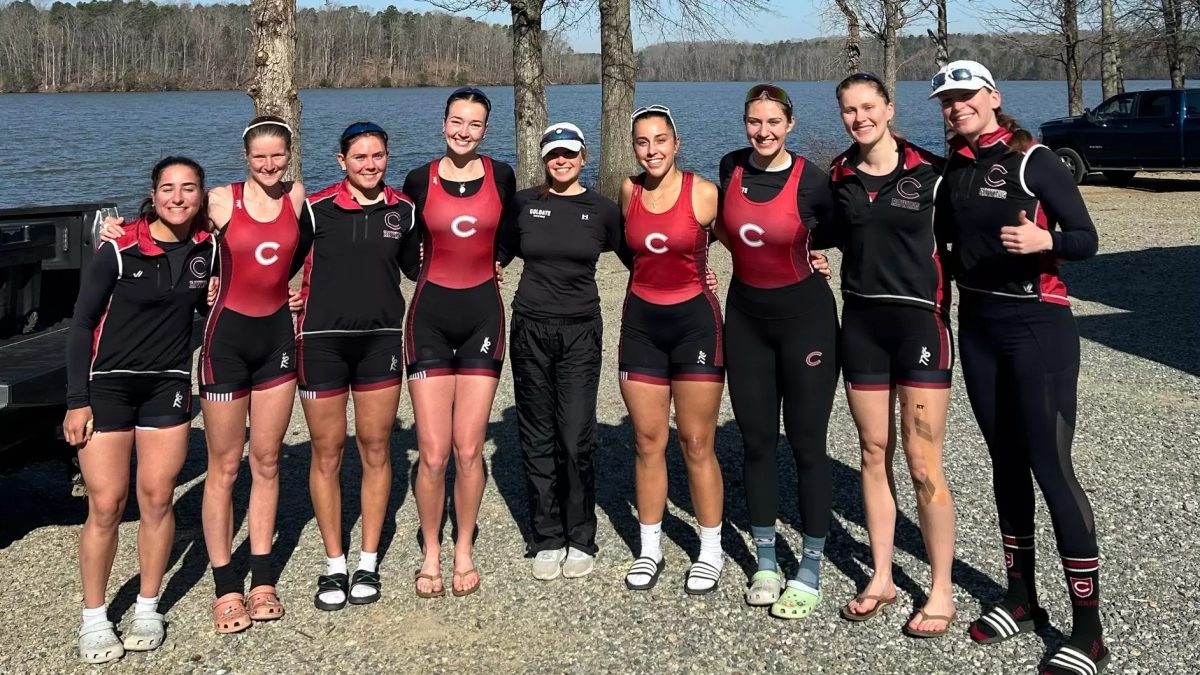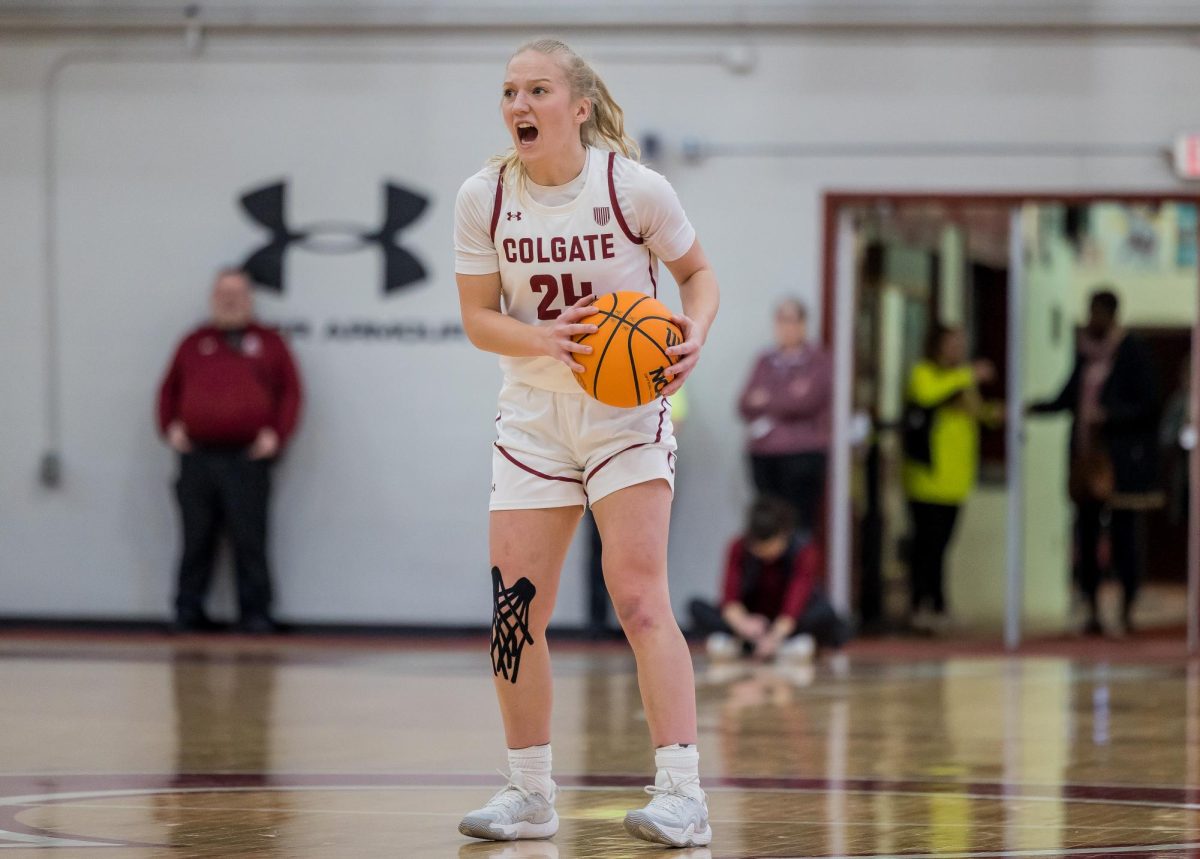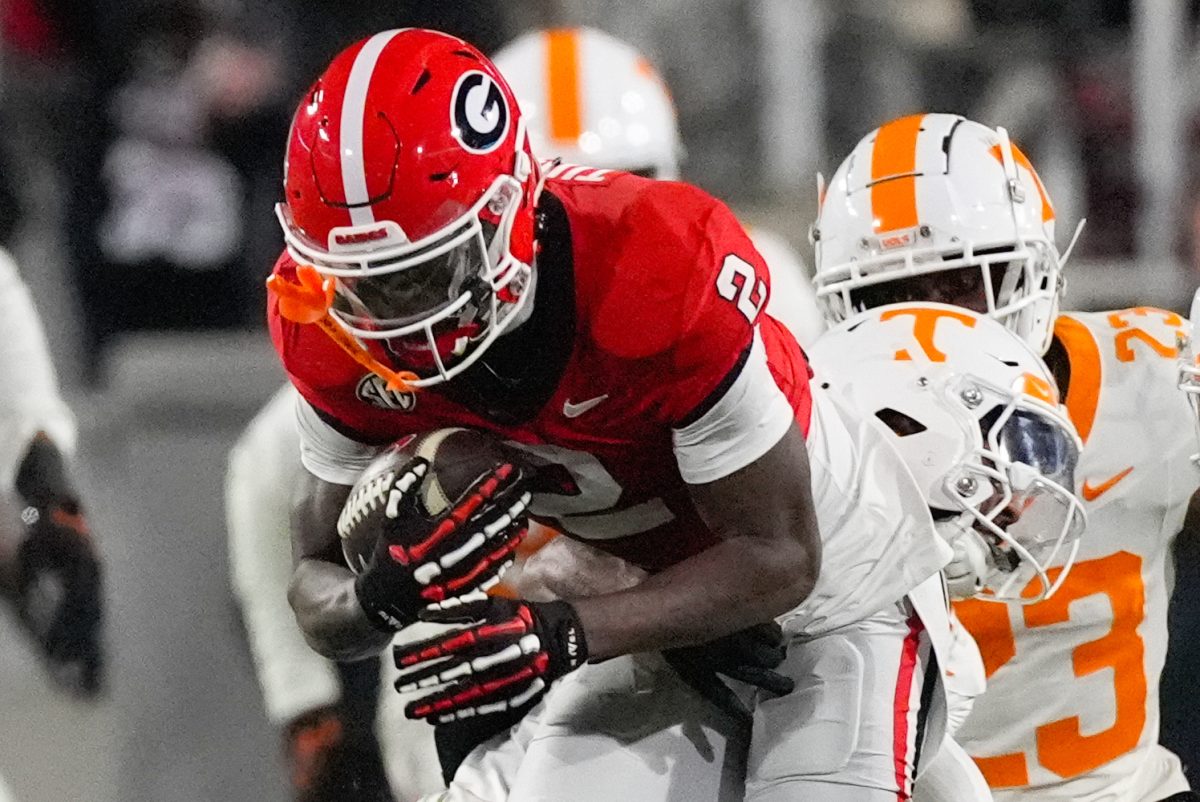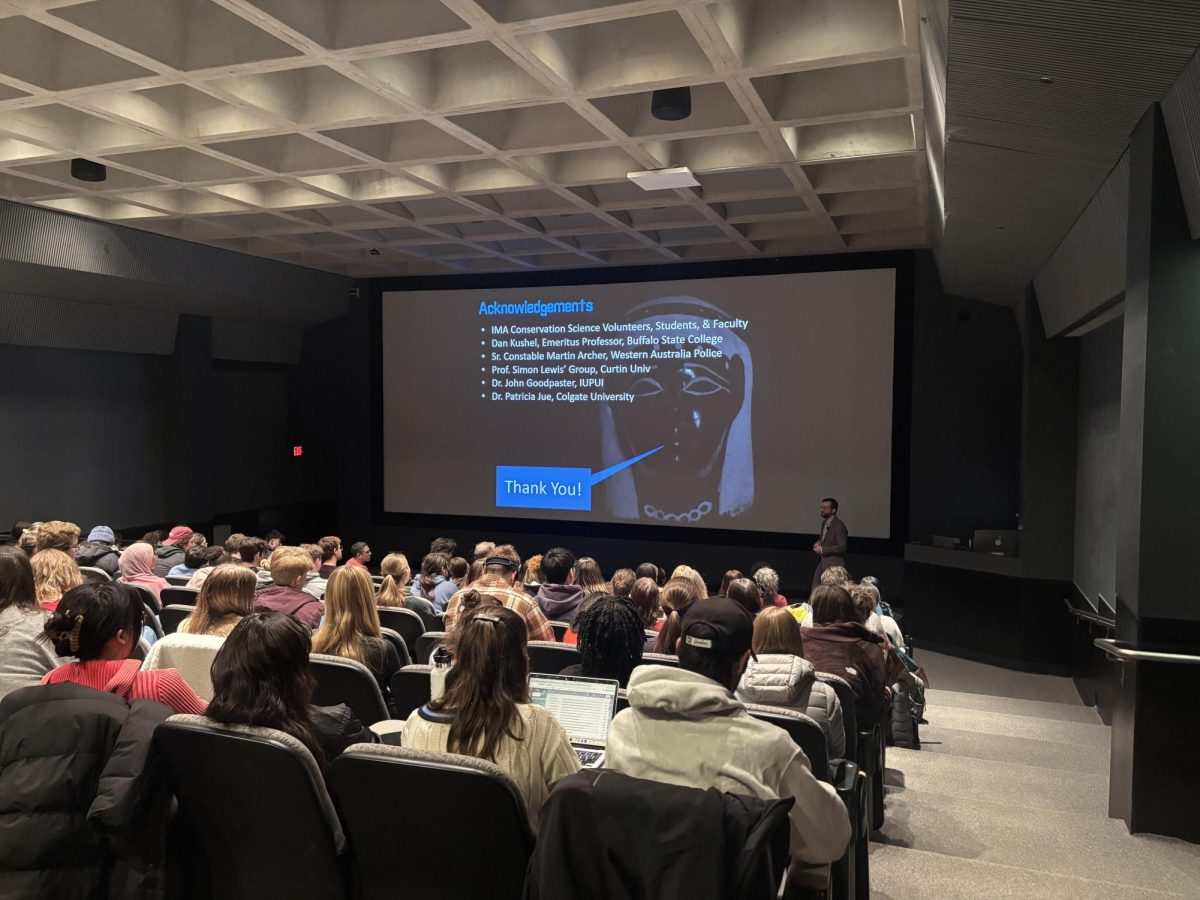On Nov. 3, Colgate University’s women’s soccer team played their final game of the season. The season concluded with a loss to Loyola University Maryland in the quarterfinal round of the Patriot League tournament, eliminating a Raider team that was eager to make a mark in their second-straight postseason appearance.
“We just left it [all on] the field,” said Olivia Anderson, a senior defender who clocked the second-highest number of minutes on the team this season. “Obviously it’s upsetting, but we’re really grateful for each other and proud of the performances we put together.”
Aside from the early playoff exit, Colgate’s season was a successful one. The team secured fifth place in the Patriot League with a 5-10-4 record, as opposed to their sixth-place finish last season and ninth-place finish two years before.
2023 was the first year anyone on the current team had made it to the playoffs. Coming into this season, the team had the added preparedness and experience of knowing what it takes to get into the tournament, which is something sophomore goalkeeper Ella Poppinga commented on.
“Just knowing the differences between our two seasons, like, last year they said we were kind of lucky to get in and then this year having clinched before all the games were finished,” Poppinga said. ”Obviously the result wasn’t in our favor, but I still think that we did so much more throughout the season to get us to the same spot that we were in last year.”
Ari Bezanson, a junior midfielder and Colgate’s leading goal-scorer, attributes the team’s success to their ability to address and move past adversity, especially in the post-game huddle.
“In the huddle, we would try to leave that loss and emotion there and get all those feelings out while we’re still at the field, and then try to move on and use it as fuel for the next game,” Bezanson said.
Colgate had its tough moments over the course of the season, especially during the start, having notched only one win in their first eight games. Both Poppinga and Anderson talked about the optimism that enabled the team to keep fighting and playing hard.
“We really took every game as two opportunities and two new halves,” said Poppinga. “The team mentality was that no matter what the result of the last game, nothing was over, we still had a chance, something to play for and we never felt that one loss was the end of our season.”
Anderson added to the sentiment that the team fought to the very end in every game.
“We focus on the things we need to work on to win games, but also, we don’t shy away from talking about the good things that happen in games. Like in years past, if we went down a goal, it would end that way,” Anderson said. “But this year when we would get scored on, we’d be like ‘Okay, well now we got to go and get one back.’”
A common theme throughout Colgate’s season, mostly because of a weak start, was being tagged as the underdogs. But the team learned to embrace this label, and by doing so, surpassed expectations.
“We were able to own being the underdogs and being underestimated. From the beginning of our season, we were projected to finish seventh and we ended up fifth,” Poppingna said. “Every game felt like we were the ones being underestimated, and just being able to prove other teams wrong throughout the season felt good.”
And prove them wrong they did. In their last eight regular season games, Colgate only lost twice. The turning point came at the end of September. After two back-to-back losses, the team bounced back and secured a shutout win against the Naval Academy, who were ranked second in the Patriot League.
Poppinga, Anderson and Bezanson all agreed that it was their best-feeling game of the season.
“It was such a decisive win. People started taking us more seriously then,” Anderson said.
Anderson also described this year’s team as one that could “walk the walk.”
“All teams talk about what they want to do and they have all these ideas, but you have to actually go out and execute. And that’s something this year that we actually did,” Anderson said.
Colgate also tried to promote a strong, cohesive team throughout the season, whether by speaking to the importance of each person’s role on the team, or by reading inspirational books like “The Energy Bus: 10 Rules to Fuel Your Life, Work, and Team with Positive Energy” by Jon Gordon.
“We talk a lot about the role you have on our team, whether you’re on the field or ‘the bus.’ We call our bench ‘the bus’ after we read that book,” Anderson said. “I think everyone gives everything they have no matter their role. And that just makes me super proud to be a part of a program like that, so I’m going to miss it so much.”
But for Bezanson and Poppinga, who still have one and two years to go, respectively, the results of this season are now fuel for the next.
“I feel like the seniors have left us in a really good place,” Bezanson said. “So we’re just excited to build upon that and continue to grow next year and hopefully go even further.”















